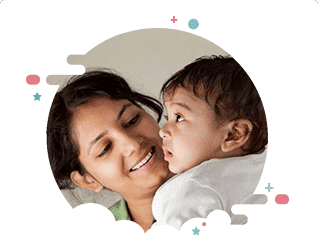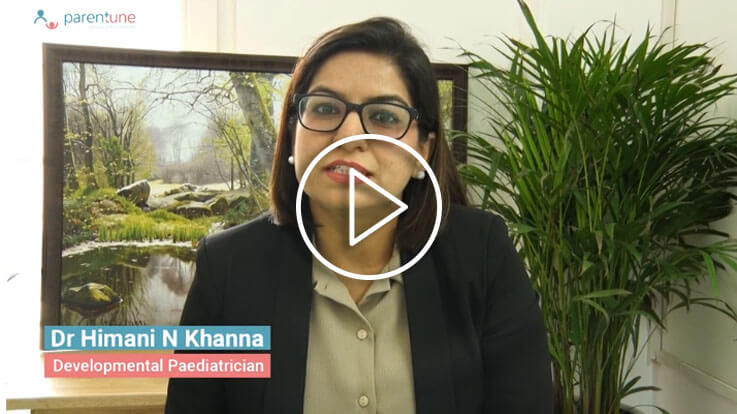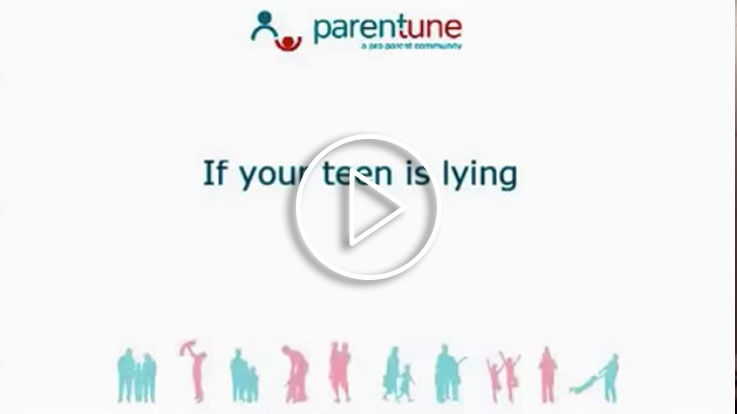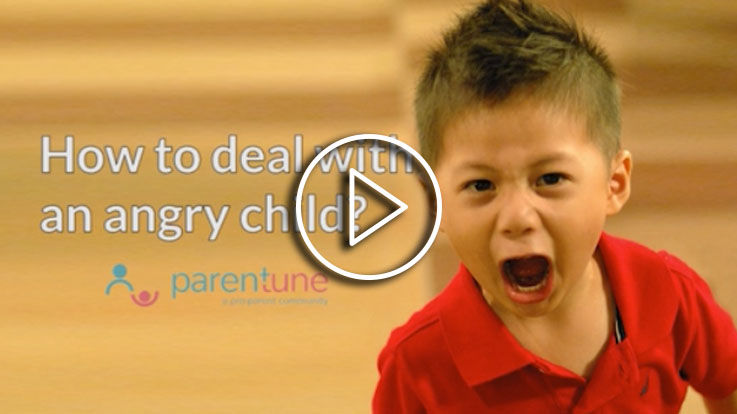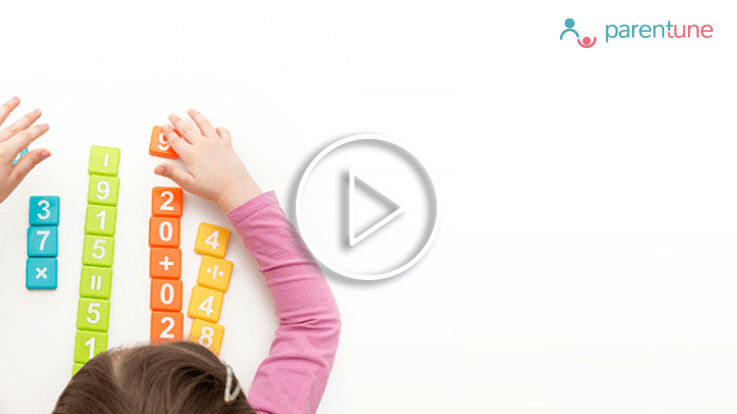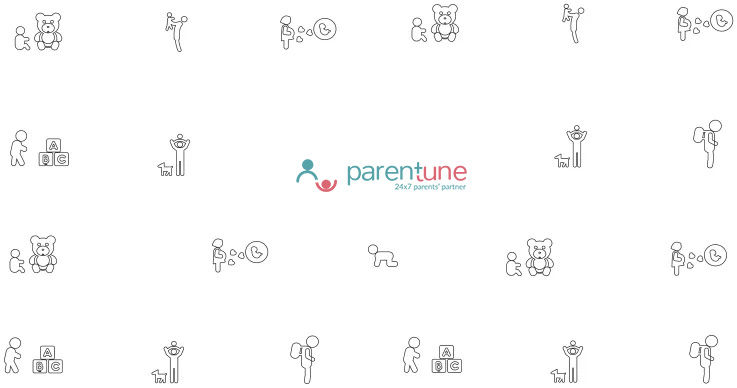Everything Parents Need To Know About HMPV : Causes, Symptoms And Prevention
India has reported 7 cases of HMPV so far and all the affected are children. Read this blog to know whether you should be concerned as a parent and how you can protect your little ones.
Almost five years following the onset of Covid-19, hospitals in China reportedly are struggling due to the rapid outbreak of severe respiratory illnesses among the masses, and . While there is a significant surge in respiratory illnesses like influenza A, Mycoplasma pneumoniae and Covid-19, it is HMPV, which is contributing to the majority of the cases. Read to know more about this virus and how it affects children.
What Is HMPV?
Human Metapneumovirus or HMPV is a virus that causes acute infection in the upper respiratory tract, which involves the nose, nasal passage, mouth, throat, and larynx (voice box), and in extreme cases, the lower respiratory tract, i.e. the bronchi and lungs. Just like flu and RSV, HMPV is a seasonal disease and is most commonly seen in early spring and winter.
The virus was first identified in the Netherlands in 2001. It is a single-stranded RNA virus from the Paramyxoviridae family, closely related to RSV (Respiratory syncytial virus).
Symptoms Of HMPV
HMPV symptoms are quite similar to those of the common cold, which can last for anywhere between 2 to 5 days. These include:
-
Cough
-
Congestion
-
Shortness of breath
-
Sore throat
-
Fatigue
In severe cases, complications like bronchiolitis or pneumonia may be seen.
Who Is At Risk Of HMPV?
HMPV can affect people of any age group, however the incidence and severity may vary. According to the American Lung Association, the likelihood of developing serious complications due to HMPV are seen in children with compromised immune systems. It is most common in children below 5 years of age and nearly 5 to 16 percent of those affected develop lower respiratory tract infections like pneumonia.
Other High-Risk Groups
The risks of developing severe HMPV-related complications are also high in
-
Elderly people, especially those above 65 years of age
-
People with chronic health conditions like Asthma and COPD
-
Pregnant women and the baby in their womb
-
People who are immunocompromised due to an existing medical condition or intense treatments like chemotherapy
How HMPV Spreads?
HMPV virus is highly contagious and can easily spread from an infected person to others by the following means:
-
Through respiratory droplets, which are released during coughing, sneezing or even talking
-
Through direct contact with an infected person, like touching their face, shaking hands, hugging them
-
Through contaminated surfaces such as door knobs, bedding, toilets, toys, etc.
-
Through respiratory particles that remain suspended in the air due to lack of ventilation and overcrowded spaces
To know more about HMPV join our Live Workshop with Dr Janardhan Reddy on December 9, 2025 at 2.30 pm. Register here.
Chronic Lung Diseases & HMPV
Having chronic lung diseases like asthma, COPD and emphysema doesn’t make one more susceptible to developing HMPV. However, if one contracts the virus, the risk of developing severe lung complications is significantly higher in such cases.
Can HMPV Be Prevented?
As of now, there is no vaccination for preventing HMPV, however, the risks can be lowered by following some simple preventive measures that are recommended for any infectious disease.
Tips For HMPV Prevention
-
Make your child develop the habit of washing their hands with soap/handwash for at least 20 sec.
-
Do not touch your child, especially their face, without making sure your hands are clean.
-
Do not let them touch their face unnecessarily.
-
Make them wash their hands before meals and especially after they come back from the playground or school.
-
Teach your child to cover their mouth while sneezing and coughing.
-
Avoid coming in contact with a person infected with HMPV, or any other respiratory illness.
-
Avoid travelling to overcrowded places,
-
Make your child wear a mask.
-
If you are noticing any symptoms, isolate your child and get in touch with a doctor.
-
Avoid frequently kissing your child, especially after you come back from work.
-
Isolate yourself if you are experiencing symptoms.
HMPV Tests & Diagnosis
Tests for HMPV are not done routinely as the cases usually surge in the colder seasons. As per an article published by NLM, “culturing the virus is relatively difficult and diagnosis is mostly based on a nucleic acid amplification test, such as reverse transcriptase polymerase chain reaction.”
Common tests for confirmation of HMPV include:
-
HMPV PCR Test: It is a highly accurate diagnostic modality that traces the genetic material in the virus. “Reverse transcription-PCR (RT-PCR) has been reported to be a more sensitive method for the diagnosis of hMPV infections than virus isolation by culture and serological study.”
-
Rapid Antigen Tests: Although the tests are quite fast and detect viral proteins, they may not be able to catch early traces or mild infections, making them a less recommended option.
-
Bronchoscopy: This involves the use of a special lighted tube to examine the lungs and airways from within. It is recommended in severe cases to look for any abnormal changes.
HMPV Treatment
Currently, there is no known cure for HMPV and treatment majorly includes the management of symptoms using the following modalities:
-
Proper rest: This is an important part of recovery for any disease or illness. This is important to help your child gain strength and energy, as well as to overcome fatigue related to the disease.
-
Hydration: This is important to regulate the fluid balance which is crucial for transporting immune cells throughout the body. Intravenous fluids may be given in case of dehydration.
-
Medication: Over the counter medication may be recommended by the doctor to manage severe symptoms. These should not be given without doctor’s advice.
-
Oxygen therapy: This may be recommended for children experiencing breathing difficulties, to provide support.
-
Hospitalization: Based on the severity of the symptoms, the child may be hospitalized
HMPV can be easily prevented. If your child presents with any of the related symptoms, consult a doctor and get them evaluated immediately.



